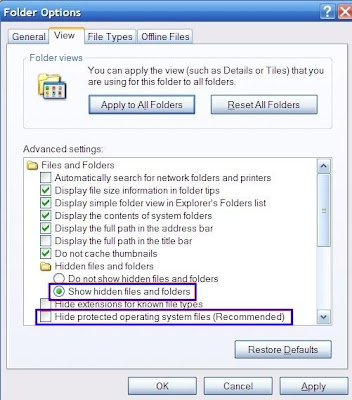Relevant Symptoms about Not-a-virus:AdWare.Win32.Agent.aknu
- Not-a-virus:AdWare.Win32.Agent.aknu is an unwanted computer infection which sneaks into computer secretly
- Not-a-virus:AdWare.Win32.Agent.aknu always bypass security tools through rootkit tactic
- Not-a-virus:AdWare.Win32.Agent.aknu weakens system security and computer response
- Not-a-virus:AdWare.Win32.Agent.aknu is infamous for inserting computer with unknown infections
- Not-a-virus:AdWare.Win32.Agent.aknu may track and send your personal information to hackers
Know more about Not-a-virus:AdWare.Win32.Agent.aknu
Not-a-virus:AdWare.Win32.Agent.aknu is a tough computer virus which wouldn’t be removed by security tools easily. Protected by rootkit tactic, the virus is able to bypass various antivirus software to remain on computer for long. Keeping affected by the virus, not only computer will be dragged into slow running speed, but also the essential files are risky to be destroyed that it may force computer to crash down.
Not-a-virus:AdWare.Win32.Agent.aknu is a complicated consisted of several components. It always penetrates into computer by making use of spam email attachment, phishing website, popup advertisement and malicious links. Containing the adware component, it is capable of reset browser parameters to bombard computer with bunches of advertisements. You may also get redirected to untrustworthy websites that are managing harmful programs. Be aware that Not-a-virus:AdWare.Win32.Agent.aknu is so nasty a virus which possesses the ability to create backdoor access for allowing online hacker to take control computer remotely. At that time, the personal information including user account, password, email address and some other important data will be risky to get exposed to the bad guys. Seriously, for not to get computer involved in big trouble, Not-a-virus:AdWare.Win32.Agent.aknu must be removed soon once upon the detection.
How can Not-a-virus:AdWare.Win32.Agent.aknu to be removed once for all?
Users who get entangled with Not-a-virus:AdWare.Win32.Agent.aknu must be very upsetting due to the frustration of virus removal. The failure of Not-a-virus:AdWare.Win32.Agent.aknu’s thorough removal can not be attributed to antivirus software but to the virus itself. It is very strong a virus skills in concealing deeply among system files and registry entries that most of the security applications can simply quarantine its infected files but never be able to exterminate this threat once for all. Fortunately, manual removal method is a way that mainly used to pick up the infected files and get them removed permanently. Now, it’s your time to follow the instructions below.
Take the following guides to remove Not-a-virus:AdWare.Win32.Agent.aknu manually
1. To stop running processes of Not-a-virus:AdWare.Win32.Agent.aknu, please press Ctrl+Alt+Delete keys to open Task Manager:
[random name].exe
2. Show all hidden files: On Windows XP



On Windows 8 /8.1

3. Search and find the related files of Not-a-virus:AdWare.Win32.Agent.aknu, delete them all:
4. Terminate these Registry Entries created by Not-a-virus:AdWare.Win32.Agent.aknu.
Method 1 (Available on Windows XP, Windows 7 /Vista, and Windows 8 /8.1):



Method 2 (Available on Windows 7/ Vista):



Attention: As the virus has the ability to change the infected files and registry entries randomly, users may not be able to locate and delete the correct ones. It is not suggested to do it yourself if you are not familiar in computer knowledge. In order not to mess up the system, please click and start a live chat with expert here.

[random name].exe
2. Show all hidden files: On Windows XP
- Close all programs so that you are at your desktop.
- Click on the Start button. This is the small round button with the Windows flag in the lower left corner.
- Click on the Control Panel menu option.
- When the control panel opens click on the Appearance and Personalization link.
- Under the Folder Options category, click on Show Hidden Files or Folders.
- Under the Hidden files and folders section, select the radio button labeled Show hidden files, folders, or drives.
- Remove the checkmark from the checkbox labeled Hide extensions for known file types.
- Remove the checkmark from the checkbox labeled Hide protected operating system files (Recommended).
- Press the Apply button and then the OK button

- Click and open Libraries
- Under the Folder Options category of Tools , click on Show Hidden Files or Folders.
- Under the Hidden files and folders section, select the radio button labeled Show hidden files, folders, or drives.
- Remove the checkmark from the checkbox labeled Hide extensions for known file types.
- Remove the checkmark from the checkbox labeled Hide protected operating system files (Recommended).
- Press the Apply button and then the OK button.
On Windows 8 /8.1
- Click on Windows Explorer ;
- Click on View tab;
- Check the "Hidden Items" box
3. Search and find the related files of Not-a-virus:AdWare.Win32.Agent.aknu, delete them all:
%AppData%\<random>\
%LocalAppData%\KB8456137\KB8456137.exe
%AppData%\<random>\<random>.exe
%Temp%\[random].bat
4. Terminate these Registry Entries created by Not-a-virus:AdWare.Win32.Agent.aknu.
Method 1 (Available on Windows XP, Windows 7 /Vista, and Windows 8 /8.1):
- Call out “Run” box by pressing “Windows” key + “R” key on your keyboard;
- Type "Regedit" into the Run box and click OK to open Registry Editor
Method 2 (Available on Windows 7/ Vista):
- Click on Start button to open Start Menu
- Type "Regedit" into the search box and click on Regedit to open Registry Editor
HKEY_LOCAL_MACHINE\SOFTWARE\Microsoft\Windows
NT\CurrentVersion\Winlogon\[random]
HKEY_LOCAL_MACHINE\SYSTEM\ControlSet001\Services\svflooje\Enum\[random]
HKEY_LOCAL_MACHINE\SOFTWARE\Microsoft\Windows\CurrentVersion\policies\Explorer\Run\[random]
HKEY_LOCAL_MACHINE\SOFTWARE\Clients\StartMenuInternet\FIREFOX.EXE\shell\safemode\command
"(Default)" = ""%LocalAppData%\<random 3 chars>.exe"
-a "C:\Program Files\Mozilla Firefox\firefox.exe" -safe-mode"
HKCU\Software\Microsoft\Windows NT\CurrentVersion\Winlogon\shell =
"explorer.exe,%AppData%\skype.dat"
Attention: As the virus has the ability to change the infected files and registry entries randomly, users may not be able to locate and delete the correct ones. It is not suggested to do it yourself if you are not familiar in computer knowledge. In order not to mess up the system, please click and start a live chat with expert here.
No comments:
Post a Comment